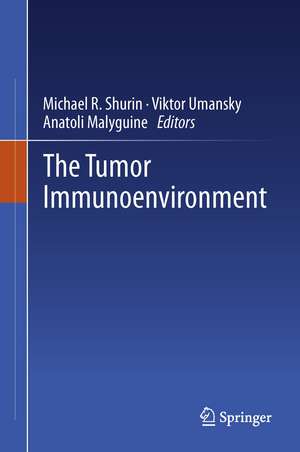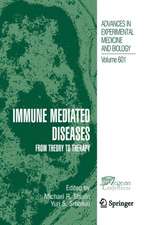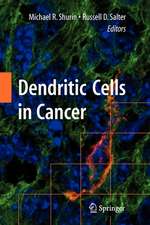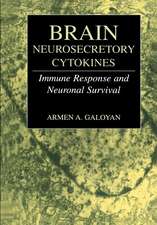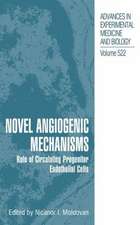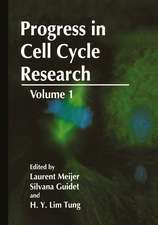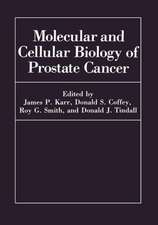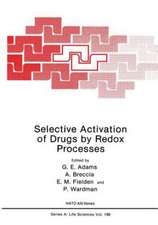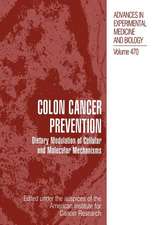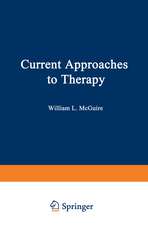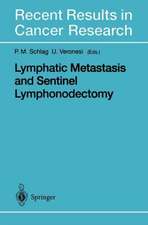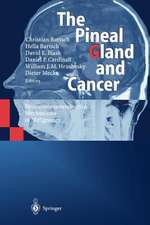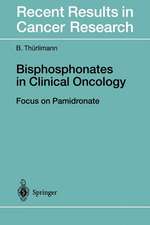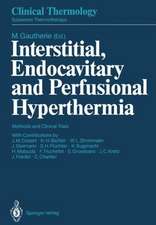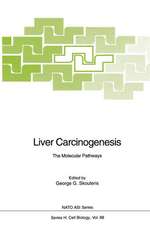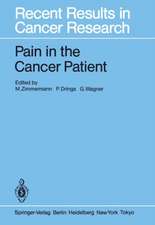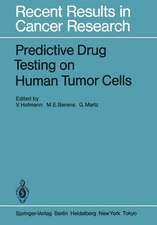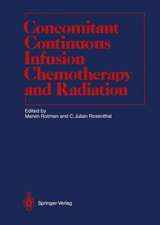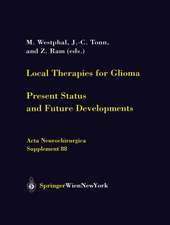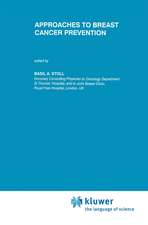The Tumor Immunoenvironment
Editat de Michael R Shurin, Viktor Umansky, Anatoli Malyguineen Limba Engleză Hardback – 4 apr 2013
| Toate formatele și edițiile | Preț | Express |
|---|---|---|
| Paperback (1) | 1341.28 lei 38-44 zile | |
| SPRINGER NETHERLANDS – 23 aug 2016 | 1341.28 lei 38-44 zile | |
| Hardback (1) | 1456.88 lei 43-57 zile | |
| SPRINGER NETHERLANDS – 4 apr 2013 | 1456.88 lei 43-57 zile |
Preț: 1456.88 lei
Preț vechi: 1533.56 lei
-5% Nou
Puncte Express: 2185
Preț estimativ în valută:
278.86€ • 303.01$ • 234.40£
278.86€ • 303.01$ • 234.40£
Carte tipărită la comandă
Livrare economică 21 aprilie-05 mai
Preluare comenzi: 021 569.72.76
Specificații
ISBN-13: 9789400762169
ISBN-10: 940076216X
Pagini: 400
Ilustrații: XVI, 745 p.
Dimensiuni: 155 x 235 x 35 mm
Greutate: 1.59 kg
Ediția:2013
Editura: SPRINGER NETHERLANDS
Colecția Springer
Locul publicării:Dordrecht, Netherlands
ISBN-10: 940076216X
Pagini: 400
Ilustrații: XVI, 745 p.
Dimensiuni: 155 x 235 x 35 mm
Greutate: 1.59 kg
Ediția:2013
Editura: SPRINGER NETHERLANDS
Colecția Springer
Locul publicării:Dordrecht, Netherlands
Public țintă
ResearchCuprins
Preface.- Introduction.- Role of the immunological environment in cancer initiation, development and progression.- Part I Tumor Microenvironment and Immunoenvironment.- The metastatic microenvironment.- Tumor infiltration by immune cells: pathologic evaluation and a clinical significance.- Immunologic interpretation of cancer biology: impact on clinical outcome.- Part II Developmental Characteristics of the Tumor ImmunoEnvironment.- Development of antitumor cellular immunity.- The versatile world of inflammatory chemokines in cancer.-Inflammation, Tumor Progression, and Immune Suppression.- Pleiotropic and differential functions of IL-1a and IL-1b shape the tumor microenvironment and affect the outcome of malignancies.- Impact of obesity and aging on the tumor immunoenvironment.- Part III Tumor Escape from Immune Recognition.- MHC class I antigens and the tumor microenvironment.- Tumor-produced immune regulating factors.- Roles of signaling pathways in cancer cells and immune cellsin generation of immunosuppressive tumor-associated microenvironments.- T cell malfunction in the tumor environment.- Signaling of tumor-induced immunosuppression of dendritic cells.- Tumor microenvironment may shape the function and phenotype of NK cells through the induction of split anergy and generation of regulatory NK cells.- Part IV Immune Regulators in the Tumor ImmunoEnvironment.- The role of myeloid-derived suppressor cells in cancer.- Macrophage differentiation and activation states in the tumor microenvironment.- Dendritic cells and cancer: development, dysfunction and therapeutic targets.- The role of tumor-associated neutrophils in cancer.- Mast cell modulation of the tumor microenvironment.- Regulatory T cells in patients with cancer.- Tumor-evoked regulatory B cells as important mediators of cancer escape.- Part V Tumor Escape and Cancer Immunotherapy.- Cancer immunotherapy: Overview in brief.- Programming of MDSC: New opportunities for targeted therapy.- Therapeutictargeting regulatory T cells in tumor.-ChemoImmunoModulation: Focus on myeloid regulatory cells.- Combining vaccines with therapies that render tumor cells more susceptible to immune mediated killing.- Prophylactic Cancer Vaccines.- Part VI Analyzing Immune Responses in Cancer.- Approaches to Immunologic Monitoring of Clinical Trials.- Evaluation of the tumor immunoenvironment in clinical trials.- Analysis of Myeloid-derived Suppressor Cells in Patients with Cancer.- When results of T cell immune monitoring match or do not match clinical outcomes of tumor vaccine trials - what more could and should we measure?
Textul de pe ultima copertă
Interaction between malignant cells and their surrounding tissue plays a crucial role in tumor growth, invasiveness and spreading to the distant organs. New findings provide evidence of a principal importance of the immune cells for controlling this interaction and orchestrating multiple events in the tumor microenvironment. The balance between immune cells that support tumor progression and immune cells that sustain tumor-controlling immune surveillance is tightly regulated by various factors originated from both the malignant and non-cancerous cells in the tumor microenvironment. Analysis of multidirectional immunological responses at the tumor site allows forming a new concept of The Tumor ImmunoEnvironment, which is introduced and discussed in the present book with a particular focus on the role of immune cells in controlling the tumor microenvironment at different stages of cancer development. The main goal of this publication is to provide an overview of the current knowledge on the complex and unique role of the immune system, tumor-associated inflammation and tumor-mediated immunomodulation in cancer progression in a way that allows understanding the logistics of cellular and molecular interactions in the tumor lesions. Moreover, it is discussed how these interactions evolve during cancer progression and in response to different kinds of anticancer therapy. It is anticipated that the book will attract many researchers and clinicians in the field of basic and applied tumor immunobiology and open new opportunities for collaborative programs aiming at the development of effective and feasible therapeutic approaches to cancer treatment.
Caracteristici
This is a unique and very first book summarizing current knowledge on immune cell functioning in cancer Focus on both experimental animal results and human clinical trials Prepared logically linked chapter in one comprehensive review of the field Includes supplementary material: sn.pub/extras
